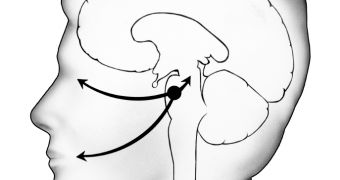A group of researchers with the School of Public Health at the University of Michigan (U-M) found in a new study that people who are infected with the herpes virus can experience a higher incidence of cognitive impairment over the course of their entire lifetimes.
The current research effort was centered on young adolescents, ages 12 through 16, and is the first study ever to investigate such a correlation in this age group. The incidence of two types of herpes virus, Herpes Simplex Virus Type 1 and cytomegalovirus (CMV), was studied, the group says.
The team also included two other age groups, 20 to 59 and beyond 60. The scientists then analyzed how cognitive impairment was distributed throughout these groups, in correlation to the strain of herpes virus the participants were infected with, and the age when the original infection occurred.
Data for this research was collected from the US National Health and Nutrition Examination Survey. Details of the study appear in a paper published in the latest issue of the Journal of Infectious Diseases.
The oral herpes virus, HSV-1, has been demonstrated years ago to play a role in the development of a variety of neurological disorders in the older population, including dementias and Alzheimer's disease. However, no research had been conducted to determine if these effects begin early on in life.
“This study is a first step in establishing an association between these viruses and cognition across a range of ages in the U.S. Population,” says U-M associate professor of epidemiology Allison Aiello.
Scientists were able to determine that children (ages 12 to 16) obtained lower average reading and spatial reasoning test scores if they were infected with HSV-1. In adults, the viral agent caused decreases in visual motor speed and attention. Older adults were affected with memory impairment.
“If HSV-1 begins to have impact on cognitive function early in life, HSV-1 infection in childhood may have important consequences for educational attainment and social mobility across the lifespan,” explains University of Wisconsin-Milwaukee Assistant Professor of epidemiology Amanda Simanek, who was previously an assistant research scientist in the U-M Department of Epidemiology.
Currently, official statistics show that more than 33 percent of the entire population of the United States is infected by one of the two strains of the herpes virus. Infection usually occurs during early childhood.
“Once acquired, herpes viruses are never cleared from the body and instead persist in a latent state. Such pathogens are, however, subject to reactivation and capable of invading the central nervous system, where they may exert direct damage to brain,” Simanek concludes.

 14 DAY TRIAL //
14 DAY TRIAL //